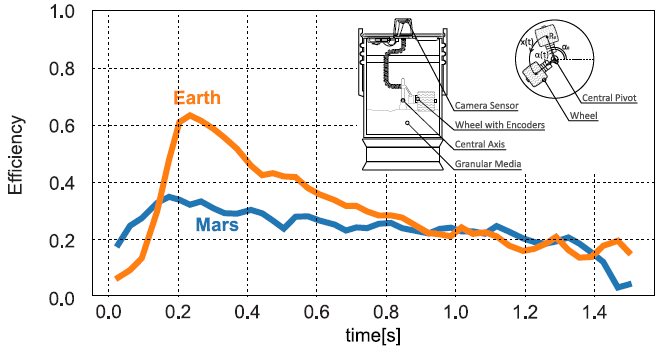Measuring the Performance of a Rover Wheel In Martian Gravity
Abstract
With the increase of planetary exploration missions and thereby the resultant increase of extraterrestrial rovers deployed, their mobility performance meets new challenges. Wheel-soil interaction plays an important role in the movement of these rovers. Our research addresses the study of this interactions in the first moments of the trajectory. The investigations reported so far, focus on long-distance motion (approx. 20-30 cm). However, the authors believe that the firsts interactions are crucial for the future performance of the motion. Here, by means of a device that allows multiple and precise repetitions of a wheel rolling experiment at controlled gravities, we characterize the movement of a wheel on sandy soil, in the gravity of Mars. Our study reveals that gravity influences the performance of the wheel, under these conditions. The experiments show that, as the gravity decreases, the rolling efficiency also decreases.


This work is licensed under a Creative Commons Attribution-NonCommercial 4.0 International License.
This work is licensed under the Creative Commons Attribution-NonCommercial 4.0 International (CC BY-NC 4.0) license.








